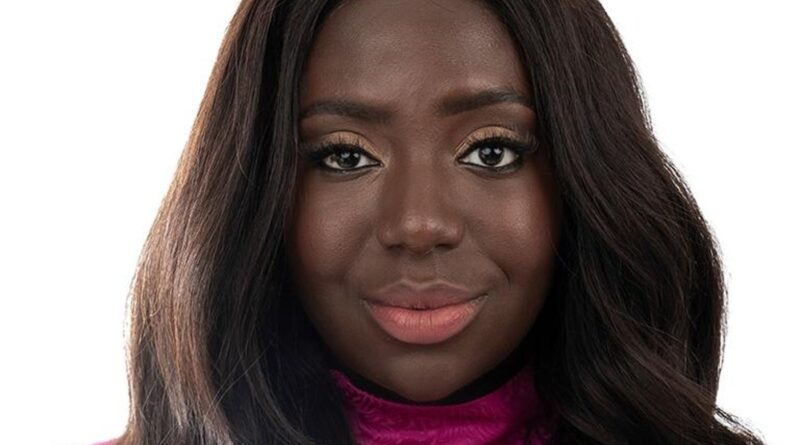This Serial Entrepreneur Connects Startups in Need of Funding with Business Accelerators That Can Help.
Esosa Eghodaro learned the benefits of being part of the business profession when he grew up … [+]
When Esosa Ighodaro founded CoSign, a tool that allows consumers to buy things they see on social media, she found that being part of an accelerator was a huge fundraising advantage. As part of the Seamless Accelerator program in Grand Rapids, Mich., the company raised $1.4 million from three leading investors.
Ighodaro says: “Accelerator was a good step to do business for the first time, it taught me to define our problem clearly, to manage money, and to understand what investors want. “There are “A lot of talk about bootstrapping, but most successful businesses have strong support systems, and accelerator programs tend to provide that kind of support.”
Today, Ighodaro uses his power to make it easier for other founders to raise money as the founder of AcceleratorCON, an event taking place in Brooklyn, NY on Friday, Nov. 8, gathering startups and accelerators.
This event, held at the Brooklyn Navy Yard, has two tracks, one for startup founders and the other for accelerator leaders—bringing them together in a structured way. Speakers will include Seth Godin; Ankur Nagpal, founder of Teachable (whom I will interview as a volunteer manager) and Carry and Reham Fagiri, founder of AptDeco.
Also in attendance will be experts such as Geri Stengel, founder of research firm Ventureneer, and representatives of accelerators such as ERA NYC, Cela Innovation, Hearst Labs, Kaplak Ventures and Quay Acceleration, among others. The event, sponsored by Microsoft, Oracle and TechStars, has about 500 people registered, according to Ighodaro.
Only 2.3% of venture capital goes to female founders, according to PitchBook, and less than one-half of one percent (.48%) of all venture dollars went to founders of Blacks in 2023, according to Crunchbase.
“Technology investing is still a relationship-based industry,” says Ighodaro. “It’s hard for people outside the traditional network—those who didn’t go to Ivy League schools or who didn’t connect through family or social connections—to get in. With this new initiative, the founders get an opportunity to to connect directly with investors without the need for a ‘warm introduction,’ which is often required for others who do not have a network, I see this as an opportunity to make important connections and expand my role. place to invest.”
Ighordaro works in the world many founders would like to join as VC-in-residence at Pipeline Angels, a group focused on providing a “friends-and-family” round of financing to entrepreneurs who may not have that support and Barclay’s Bank Formation. Investment (BBFI) venture scout for the investment vehicle managed by Zeal Capital Partners in New York.
One of his goals for this event is to help underrepresented founders make the kind of connections that can lead to successful fundraising efforts.
“With this new project, I hope to expand these opportunities for people of color and women to access accelerator programs,” she says. “Studies show that founders are more likely to get funding after participating in an accelerator, especially for women and founders of color. These programs create networks and connections that are very important, especially for those without an established network.”
Startups that participated in accelerators raised between 50-170% more than startups that did not, according to research published recently in the Harvard Business Review. These startups also had a chance to survive or be acquired.
Ighodaro first saw the need for new business centers through his experiences as a founder. “When I was starting out in tech, especially in New York around 2011-2012, there weren’t a lot of resources or a community of people like me, so I felt alone,” he says. he says.
She talked about that by creating Black Women Talk Tech, a community of venture capitalists. “Black Women Talk Tech has become a way to build a community, provide resources, and create content that resonates with our needs,” she says. “We’re running a series of conferences called Roadmap to Billions, which are designed to help founders learn what it takes to build a business that matters without constantly needing to fly to California for resources.”
When he saw more accelerators opening, he started digging and found more than 3,200 programs listed on Crunchbase. “A lot of founders don’t know about these opportunities, and I saw a gap where I could help them find these tools,” he says.
Ighodaro’s experiences with Women Talk Tech have shown that a similar small group of supporters often emerges, creating a cohesive community. That led to his current project to help founders connect with investors and accelerators — “something that would have been important if I was doing my own startup,” he says.
After taking over the AcceleratorCON event in New York due to flooding, Ighodaro says he’s excited to finally keep it alive—and create an opportunity for more startups to win funding. “For startup founders, access to capital is critical,” he says.
#Serial #Entrepreneur #Connects #Startups #Funding #Business #Accelerators
